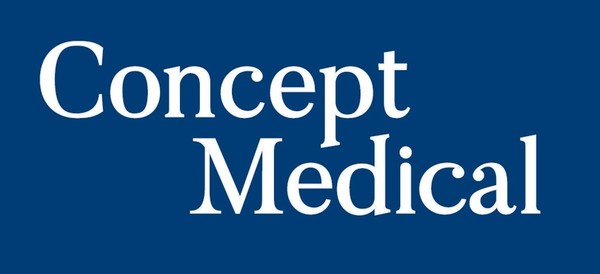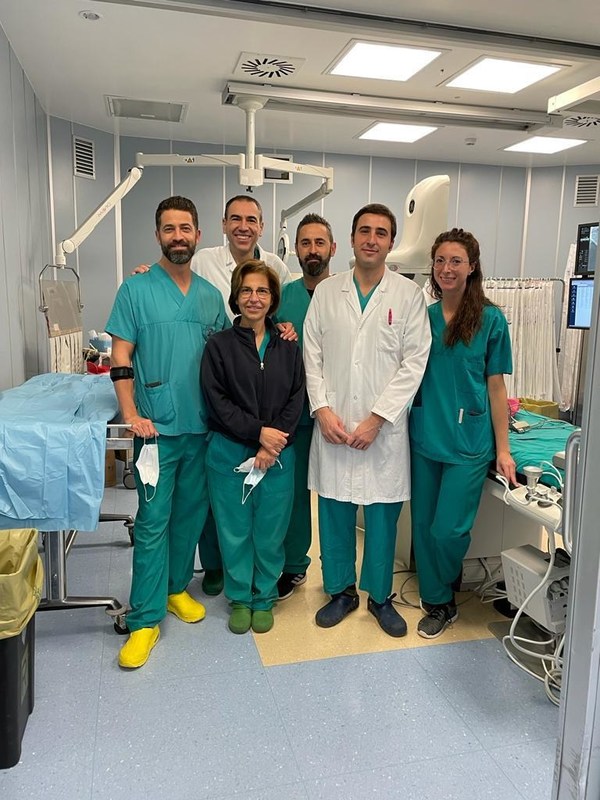 |
MILANO, Italy, Jan. 28, 2022 /PRNewswire/ -- FONDAZIONE Ricerca e Innovazione Cardiovascolare, Milano, focused on cardiovascular research, reports the first patient enrolment of the TRANSFORM II Randomized Controlled Trial (Sirolimus-coated Balloon Versus Drug-eluting Stent in Native Coronary Vessels) setting in motion a crucial trial in the Native Coronary Vessel Treatment domain.

TRANSFORM II RCT, determined to explore and evaluate the treatment options in native coronary vessels, enrolled the index patient on the 16th December 2021 at Sandro Pertini Hospital, Rome, by the team of Dr. Alessandro Sciahbasi.
The International, multicentric, prospective, investigator-driven, open-label randomized trial will observe and evaluate the efficacy of the Magic Touch Sirolimus Coated Balloon (Concept Medical Inc.) in a head-to-head comparison with Everolimus Eluting Stent (EES) considered to be a gold standard treatment, in 1:1 randomization in the native coronary vessels. This trial is led by Study Chairman, Dr. Bernardo Cortese of the San Carlo Clinic, Paderno Dugnano-Milano, Italy. Alongside him in the steering committee are, Dr. Roxana Mehran, Dr. Alexandre Abizaid, Dr. Stefano Rigattieri, Dr. Fernando Alfonso, Dr. Jose Maria de la Torre Hernandez and Dr. Peter Smith.
The idea of intervention in small or mid-sized de-novo coronary lesion with a stent is neither desirable nor efficient, considering the heavy metal scaffolding of the vessel. Newer generation of interventionalists tend to be hesitant to load the vessel with a metal scaffold in this setting. Drug Coated Balloons (DCB) therefore offer a better option while treating native coronary artery lesions.
A total of 1325 patients will be enrolled. The study population will consist of patients with age >18 years with clinical indication of a native vessel PCI eligibility (stable CAD or Acute coronary syndrome). Native coronary artery lesion in a vessel with diameter >2.0 mm and ≤3.0 mm will be included with a maximum lesion length of 40 mm (an achievement for this type of trial) further randomized for intervention with Magic Touch or EES.
The trial aims to evaluate Magic Touch versus EES with the primary endpoint of non-inferiority in target lesion failure (TLF), a composite of cardiac death, ischemia-driven target-lesion revascularization (TLR) and, target vessel myocardial infarction (MI), at 12 months. The trial will also go on to verify and measure superiority of the study device in terms of net adverse clinical events (NACE), a composite of all-cause death, MI, ischemic stroke, and major bleeding (BARC - 3 or 5) as a co-primary end point. Follow up will be conducted at 6 months and yearly for 5 years. An OCT sub-study will be performed in a total of 70 patients, which will receive 9-month angio+OCT follow-up with Core-Lab analysis.
Over the years, Drug Eluting Stents have been the preferred option in native vessels, however, with newer and advanced DCB technologies, operators now have access to an alternative without having to worry about metal in such vessels and can achieve good results. The ongoing TRANSFORM 1 RCT comparing Sirolimus and Paclitaxel DCB in small coronary vessels: Magic Touch (Concept Medical Inc) and SeQuent Please NEO (B. Braun) is rapidly progressing with >50% enrollment already done and TRANSFORM II that follows is the perfect RCT to seek further answers in native coronary vessel treatment.
Dr. Bernardo Cortese is optimistic and excited with the onset of the RCT and briefly explains why this is a much-needed trial and what is expected out of it, "We do not need to expect a stent-like result when we use a DCB; what we aim to, is to have similar results to DES, and possibly an improved result on the long term, since we do not implant metal, and metal from stents is associated with a small but continuous increase in adverse events year-on-year," Dr. Cortese quotes "Regarding DCB, at least when you use a reliable device, we have observed a flattening of the events curve after 18 months, so why not expect better results after 3-4 years?"
In essence, TRANSFORM II will bring to light the data suggesting why this transition from stents to balloons is a necessity for some native coronary vessels and hopefully in the near future, the data will reveal encouraging and promising results.
Magic Touch Sirolimus Coated Balloon has already received a breakthrough device designation from the US FDA for the treatment of small coronary vessels as well as In-Stent restenosis. This trial may give the required inclination towards the use of DCB like the Magic Touch. It may indicate that it is time to transform.
About Magic Touch:
Magic Touch is a CE approved and commercially marketed Sirolimus coated balloon by Concept Medical, developed using the proprietary Nanoluté Technology. Magic Touch has been deployed in >50,000 patients in major global markets. Nanoluté – the unique drug delivery technology platform of Magic Touch balloon, is designed to deliver sub-micron particles of Sirolimus which are then encapsulated in a biocompatible drug carrier. The carrier-complex is designed to reach the deepest layers of the vessel walls.





